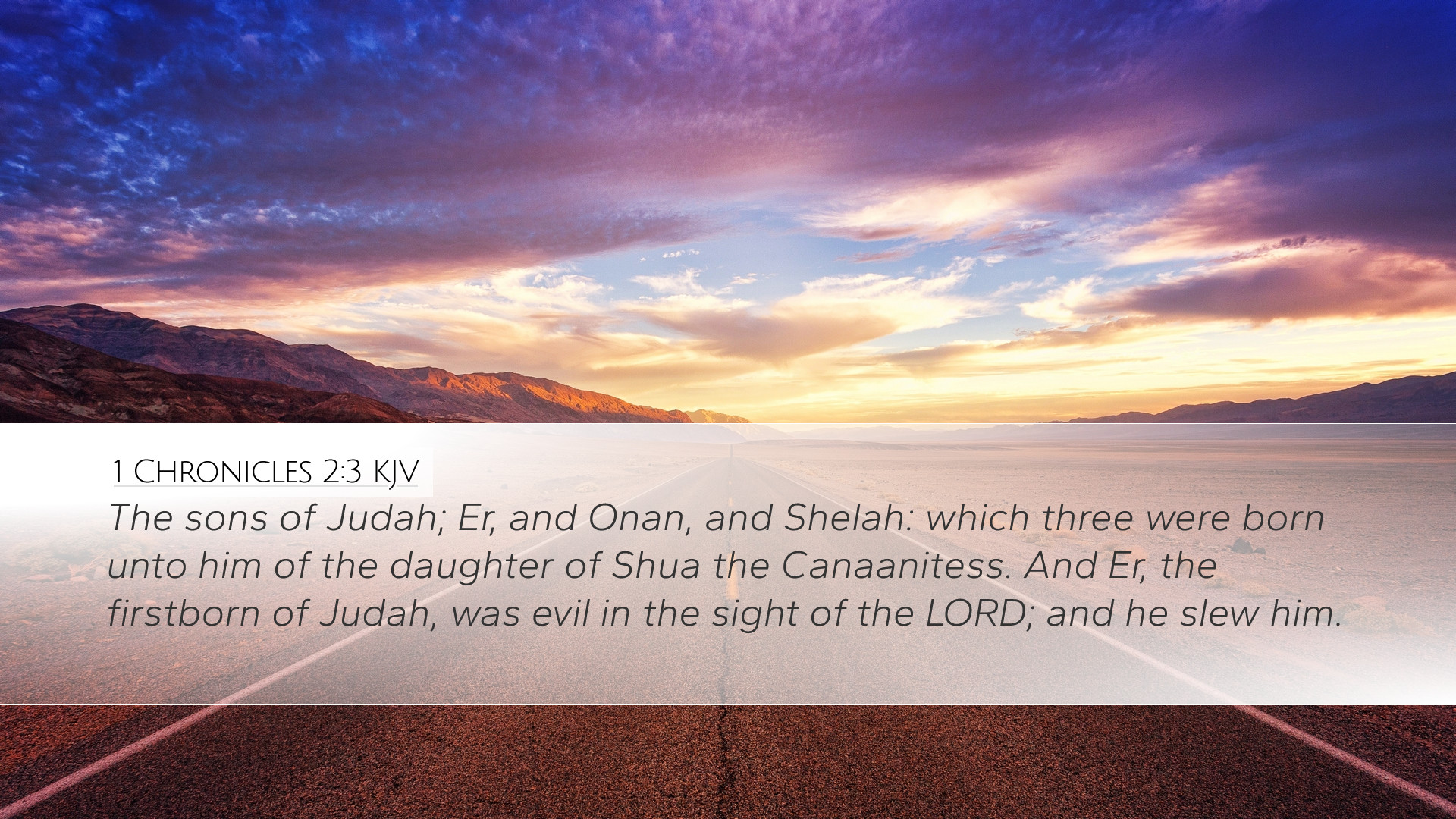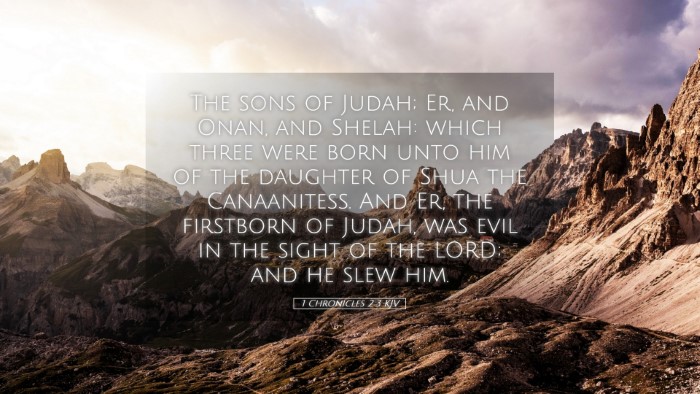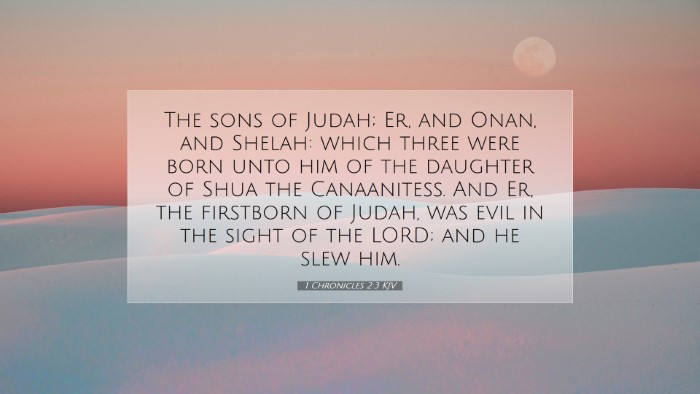Commentary on 1 Chronicles 2:3
This verse is a part of the genealogical records found in 1 Chronicles, which serve to establish the lineage and heritage of the tribes of Israel. Specifically, 1 Chronicles 2:3 introduces the descendants of Judah, an important figure within the biblical narrative. The verse reads:
"The sons of Judah: Er, and Onan, and Shelah: which three were born unto him of the daughter of Shua the Canaanites. And Er, the firstborn of Judah, was evil in the sight of the Lord; and he slew him." (1 Chronicles 2:3, KJV)
Genealogical Significance
Matthew Henry points out that the genealogies serve not only to trace the physical lineage of the tribes but also to underscore the spiritual legacy and the fulfillment of God's promises. The inclusion of names such as Er, Onan, and Shelah highlights the importance of each family line in the broader narrative of redemption. The mention of Judah, the fourth son of Jacob, reminds us of the significance of this tribe, from which the lineage of David and ultimately Jesus Christ emerges.
The Sons of Judah
-
Er: The firstborn son of Judah, whose life was marked by wickedness. Matthew Henry notes that "he was evil in the sight of the Lord," leading to divine judgment. This serves as a cautionary tale regarding sin's consequences and the nature of divine justice.
-
Onan: Er's brother who is also mentioned for his role in the continuation of the family line. The tragic account of Onan further illustrates the importance of familial duty in Israelite culture and highlights the moral implications of his actions, as discussed by Albert Barnes in his commentary.
-
Shelah: The third son of Judah, representing hope and continuity in the family line. Adam Clarke emphasizes the significance of the lineage and how such genealogies were crucial in affirming one's claim to covenantal promises.
Cultural and Theological Implications
The mention of the daughter of Shua, a Canaanite, introduces the theme of intermarriage and its implications in a holy community. Matthew Henry suggests that this marriage illustrates the tension in Israel's identity, particularly in adhering to God’s commands against such unions, which often led to spiritual compromise.
Divine Judgment on Er
The focus on Er's wickedness and subsequent death indicates the seriousness of sin and God's commitment to holiness among His people. As Albert Barnes notes, God's judgment is particular and personal, directly impacting the family's future. This serves as a theological reminder that God is not indifferent to human behavior.
Reflections for Pastoral Ministry
This passage highlights several key themes for pastors and ministers:
-
Importance of Righteousness: The biblical narrative consistently emphasizes the moral character of individuals. In preaching, leaders must stress the importance of living a life that aligns with God’s will.
-
Dealing with Consequences of Sin: As seen with Er, sin can have far-reaching consequences. Pastors should address the realities of sin and its effects while also presenting the path of repentance and redemption.
-
Faithfulness in Community: The mention of family dynamics and interrelations calls for a focus on how communities support one another in righteousness and faith.
Theological Considerations for Scholars
For theologians and scholars, this passage invites deeper exploration into:
-
Divine Sovereignty and Human Agency: How do God's sovereign choices intersect with human behavior as witnessed in the lives of Er, Onan, and Shelah?
-
Covenant Theology: Analysis of how Judah’s lineage ties into broader covenant themes throughout Scripture.
-
Judgment and Mercy: Exploring the balance of God’s judgment against sin and His overarching plan for redemption through flawed humanity.
Conclusion
In 1 Chronicles 2:3, we encounter not just names from a genealogical list, but profound theological themes that resonate through the entirety of Scripture. The tale of Judah’s sons acts as a window into God’s character and His dealings with humanity. The interwoven narratives demonstrate His justice, the call to righteousness, and the promise of redemption that spans generations.


